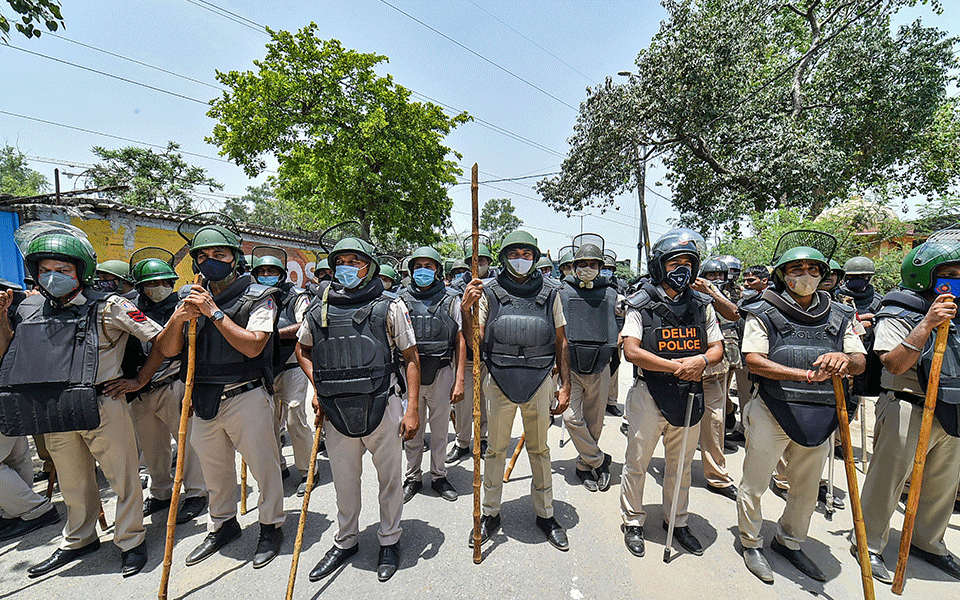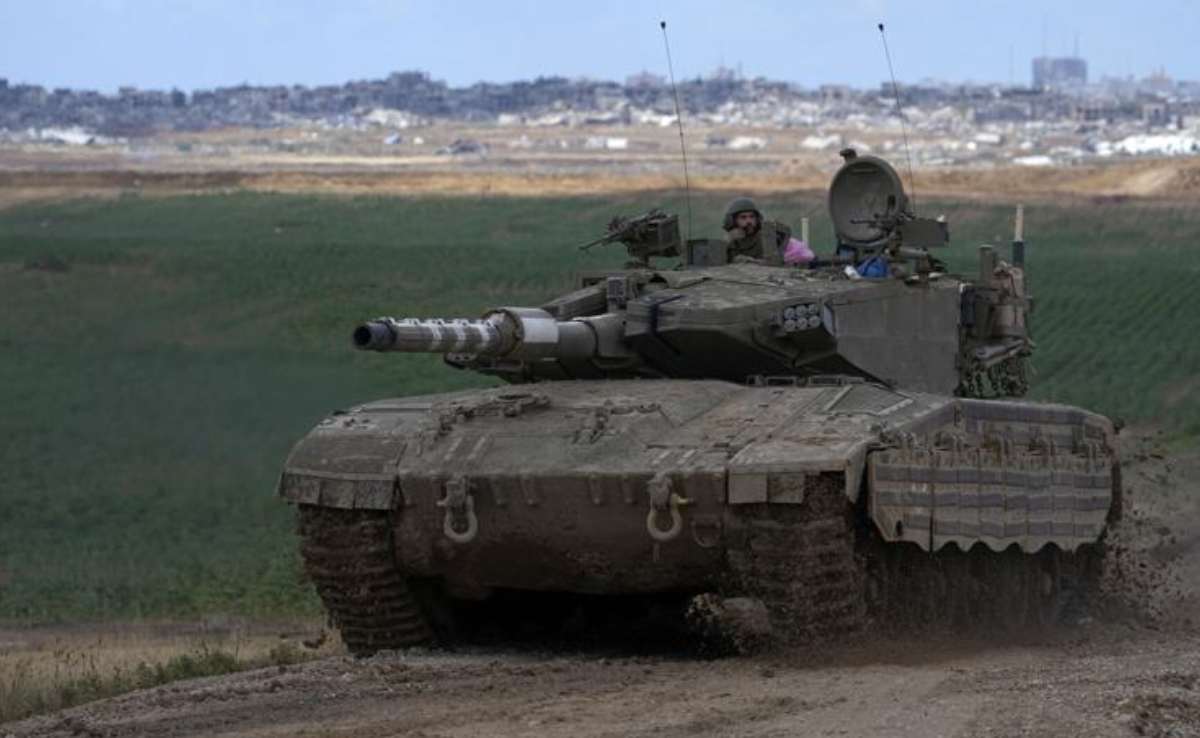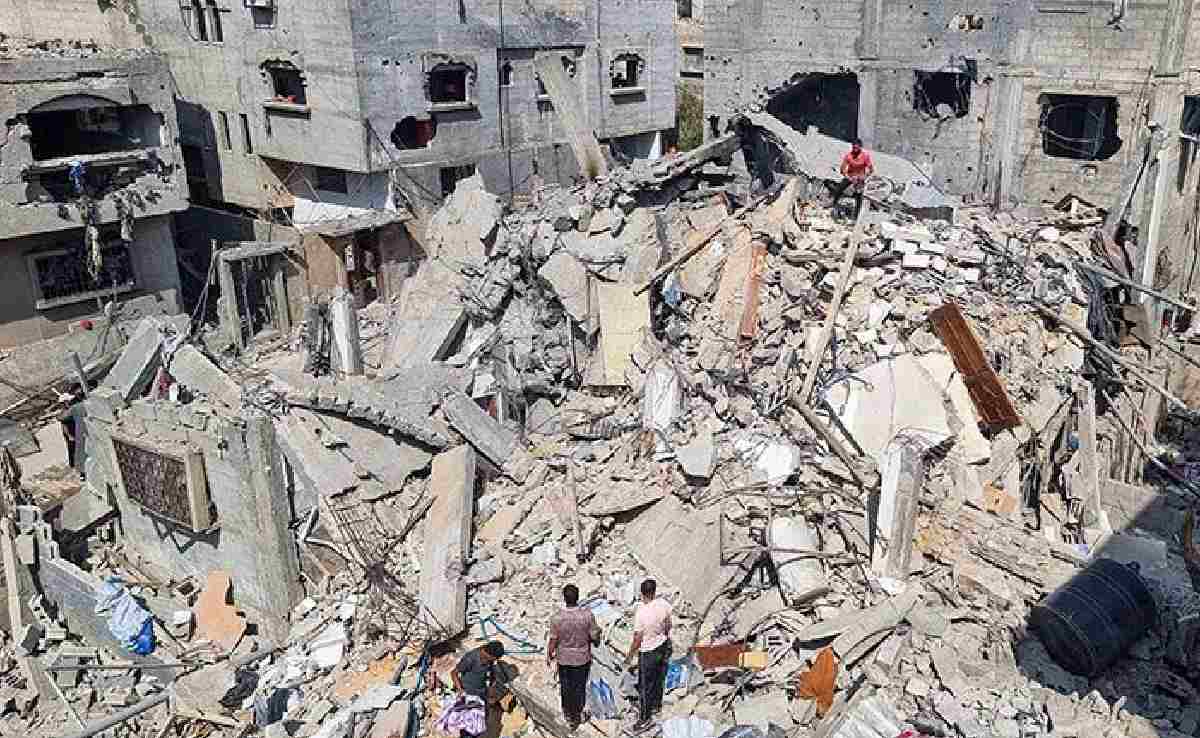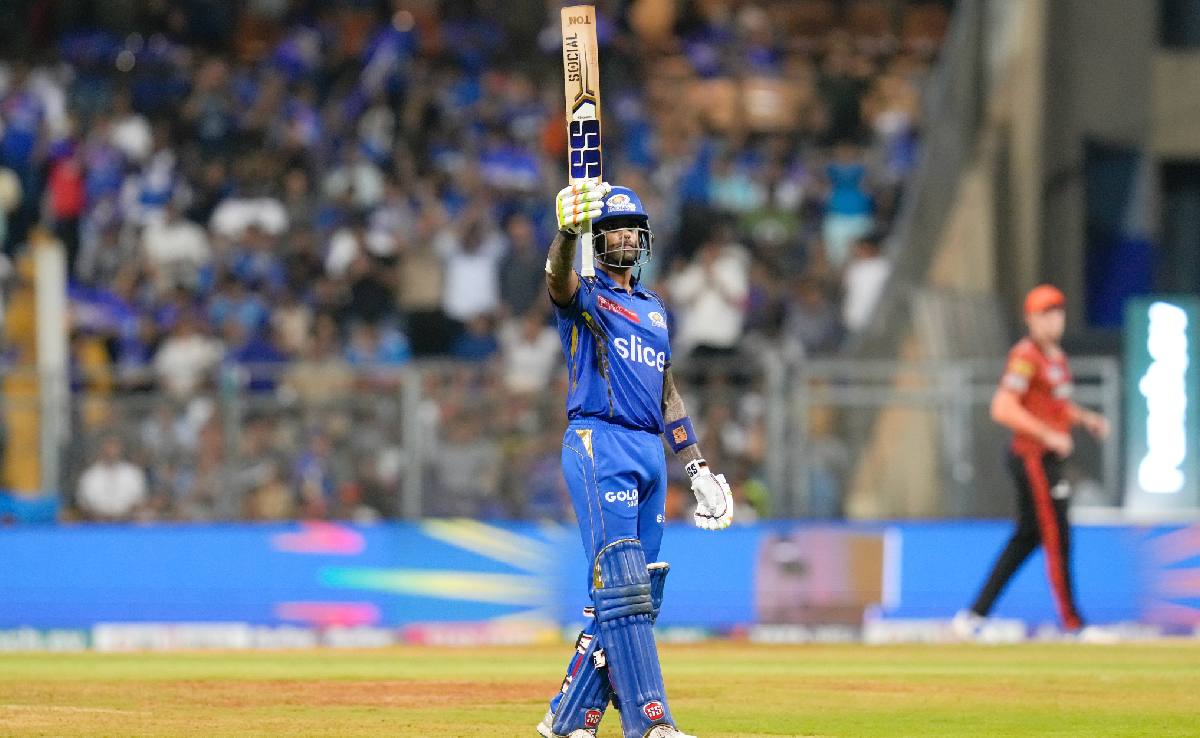Chandigarh: Police on Saturday used a water cannon to disperse farmers as they broke through barricades at Chandigarh-Mohali border, trying to march towards the Punjab governor's house here.
One of the protesting farmers climbed on top of a water cannon vehicle.
Officials said heavy police force was deployed in Chandigarh following a call by farmers to march towards the governor's house here and submit a memorandum to mark the completion of seven months of their agitation against the Centre's three new farm laws.
A large number of farmers, including women, from several parts of Punjab assembled at Amb Sahib gurudwara in Mohali before moving towards Punjab Raj Bhavan.
Similarly in Haryana, farmers from several parts of the state gathered at Nada Sahib gurudwara in Panchkula and headed towards the Raj Bhavan.
In view of the farmers' protest march, the Haryana Police has made security arrangements at Chandigarh-Panchkula border.
Farmers have been protesting against the Farmers' Produce Trade and Commerce (Promotion and Facilitation) Act, 2020; Farmers' (Empowerment and Protection) Agreement on Price Assurance and Farm Services Act, 2020; and the Essential Commodities (Amendment) Act, 2020.
They have been camping at Delhi borders since November last year demanding the withdrawal of these three laws and that a new law be made to guarantee minimum support price (MSP) for their crops.
Several rounds of talks between the farmers and the government have failed to break the deadlock over these contentious laws.
The government last held talks with farmer leaders on January 22. The talks between the two sides came to a halt after a January 26 tractor parade by farmers in Delhi turned violent.
Let the Truth be known. If you read VB and like VB, please be a VB Supporter and Help us deliver the Truth to one and all.
Jerusalem, May 6: Hamas announced Monday it has accepted an Egyptian-Qatari cease-fire proposal, but there was no immediate word from Israel, leaving it uncertain whether a deal had been sealed to bring a halt to the seven-month-long war in Gaza.
It was the first glimmer of hope that a deal might avert further bloodshed. Hours earlier, Israel ordered some 100,000 Palestinians to begin evacuating the southern Gaza town of Rafah, signalling that an attack was imminent. The United States and other key allies of Israel oppose an offensive on Rafah, where around 1.4 million Palestinians, more than half of Gaza's population, are sheltering.
An official familiar with Israeli thinking said Israeli officials were examining the proposal, but the plan approved by Hamas was not the framework Israel proposed.
An American official also said the US was still waiting to learn more about the Hamas position and whether it reflected an agreement to what had already been signed off on by Israel and international negotiators or something else. Both officials spoke on condition of anonymity as a stance was still being formulated.
Details of the proposal have not been released. Touring the region last week, US Secretary of State Antony Blinken had pressed Hamas to take the deal, and Egyptian officials said it called for a cease-fire of multiple stages starting with a limited hostage release and some Israeli troop pullbacks from Gaza. The two sides would also negotiate a “permanent calm” that would lead to a full hostage release and greater Israeli withdrawal, they said.





